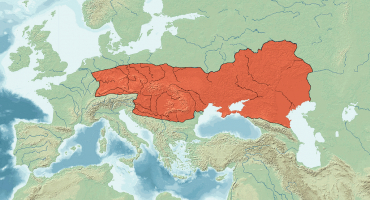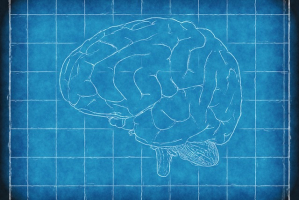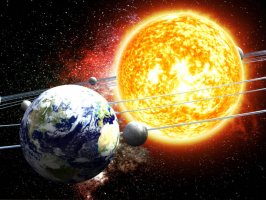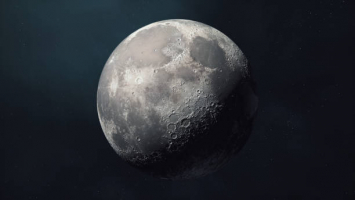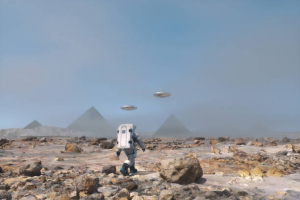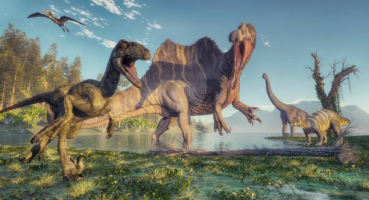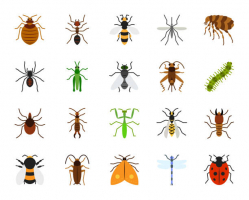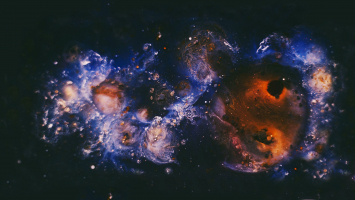Top 10 Questions About the Universe That People Can't Answer
It's incredible to think about how far humanity has come with the advancement of technology and science over the years. However, when you consider all of the ... read more...unanswered questions, you realize that people still have a long way to go in uncovering all of the universe's mysteries and unexplained phenomena. Even the most basic question, What is the Universe?, receives a bleak Wikipedia answer that may disappoint you. The truth is that science is more complicated than you think, and much of what you think you know about the universe is, well, speculation. Here is a list of some questions about the universe that people can't answer.
-
When you look up at night and see the uncountable stars scattered across the sky, it's easy to imagine the universe to be infinite. Or perhaps you see those lights as similar to the glow-in-the-dark stars on your bedroom ceiling, just pretty decorations to look at, like the high but dead-end ceiling. In any case, science has yet to determine whether the universe is infinite or finite.
Researchers, like everyone else, have theories. One group determined that the universe has an extremely flat floorplan after analyzing maps generated by observations made with the Baryon Oscillation Spectrographic Survey (BOSS), a super-powerful telescope in New Mexico. The survey was based on observations of "only" 1.2 million galaxies, which is a drop in the bucket of the universe, but it's a strong indication that the universe isn't a sphere.
Is that flatness, then, infinite? It's difficult to say. One widely held belief is that the Big Bang caused the universe to expand at a rate faster than the speed of light. People will never know if the universe has an edge because they can't see beyond the speed of light.
People will probably have to spend the rest of their lives wondering about the true size of the universe. It's a mystery, like so many others, full of enticing allure that draws their attention but never provides any real answers. Whether you're wondering how big the universe is or how life began on Earth, people's existence is filled with strange natural phenomena that people can't explain and may never understand. Those questions may trouble and haunt them for the rest of their lives, but they are also an important part of the human experience.
https://www.youtube.com/ https://www.youtube.com/ -
Time travel is one of the most intriguing science fiction concepts. It's difficult not to imagine what it would be like to travel back in time and witness a Roman battle in action. It's even more intriguing to imagine what people's worlds would be like if you could instantly see 1,000 years into the future. As it turns out, time travel may not be science fiction. It's possible that people just haven't figured out how to make it work for them yet.
Wormholes, which are sorts of bridges that can help people move through time and space, are one possibility. You could theoretically enter a wormhole if you could breach an opening into it and end up on the other side of the galaxy in a different place and time.
People could try traveling at the speed of light, but their world would be significantly slower than the one you left behind. But, according to current science, nothing can move faster than light, and even if humans could, it would rip their bodies apart.
Perhaps people could orbit massive black holes, which have such enormous gravitational pull that they actually slow time down. If you spend time near a black hole, your experience of time will be roughly half that of life on Earth. Your family would have aged 20 years if you returned 10 years later, according to your perception.
Or maybe humans could use cosmic strings, also known as cracks in the universe, to navigate time. These strings (also known as loops) have so much mass that they may cause the space-time around them to fluctuate. Manipulation of any of these scenarios could give them the ability to finally realize time travel. Even if people can figure out the science, there are numerous paradoxes that could make time travel impossible or even dangerous. So, for the time being, time travel is still the stuff of books and movies.
https://www.youtube.com/ https://www.youtube.com/ -
Trees, grasses, birds, and bees abound on the planet. It's also infested with zillions of bacteria. Everything is life, and everything reproduces to keep its kind alive. But how did life even begin in the first place? How did a swarm of cells transform from an inert collection of organic molecules to a writhing, sometimes intelligent being?
The short answer is that people don't know how life began. There's a chance that aliens dropped off a few microbes 4 billion years ago and let them loose. Of course, many religions have supernatural explanations for the origins of life.
Many scientists believe that life evolved naturally on planets with the necessary ingredients for biology, such as carbon, hydrogen, oxygen, and other fundamental building blocks. With the right spark, such as a bolt of lightning, those cornerstones gradually develop into the cell walls and DNA necessary for reproducible life. In laboratories, researchers are constantly conducting experiments like this in the hopes of narrowing in on the formula for creating life.
It's a mystery how those bits of non-living parts assembled themselves into actual living creatures, no matter how hard they tried. It is possible that people are still unaware of the characteristics that truly define life. Or perhaps people are blind to the physical principles that really make life tick. In any case, the search for the origins of life will undoubtedly continue for a long time.
https://www.youtube.com/ https://www.youtube.com/ -
Human reality is a nebulous concept. Anyone who has had a vivid nightmare knows what it's like to be trapped between a memory and a dream. Those experiences lend credence to the notion that the senses have limitations. Perhaps the eyes, ears, and sense of smell do not tell the whole story about what is going on around them.
Maybe the things and people in people's lives are just illusions. How can people be certain that any of these objects or creatures exist? Perhaps they are creations of their own internal mechanisms, spawned by their subconscious for unknown reasons. The universe could be a hologram, a "Matrix"-style computer creation designed to capture their minds and enslave them for a sinister purpose.
Scientists and physicists are skeptical that people will ever comprehend the nature of reality. The more people learn about physics, the stranger the universe's mechanics become. From molecules to atoms, people are constantly discovering new particles and fundamental forces that drive their bodies and the world. It's entirely possible that the universe is made up of dozens or thousands of dimensions that people will never directly experience.
It's unlikely that the scientific rabbit hole people are falling into will ever come to an end. Reality will always be an abstraction that humans can never quite pin down, no matter how intelligent people's species becomes.
https://www.youtube.com https://www.youtube.com -
When it comes to the questions about the universe that people can't answer, they can't help but mention how many species there are on earth. The Earth is home to an amazing variety of animals and plants. Pink flamingos fill the skies, elephants stomp through the savannas, and strange fruits and ferns hide in crevasses all over. People will never know how many species exist on the planet. There are simply too many. But that hasn't stopped scientists from attempting to find that elusive number.
Carl Linnaeus, a botanist, realized two and a half centuries ago that humans required a system for tracking the species on the planet. He started classifying plants and animals using taxonomic language, which named, ranked, and classified creatures and plants.
According to some estimates, after generations of work, people have only accounted for 1.5 million species, or about 15% of the total number. This means that the vast majority of organisms still require an adequate description. That is especially true for undervalued and underappreciated species like fungi, of which people have only described 10%. In contrast, people have done a good job with the fellow mammals, the majority of which have already been logged.
Because all of the numbers are simply statistical guesses, people may never know if they are correct. Perhaps more concerning is the fact that species appear to be disappearing at a faster rate than at any time since dinosaurs vanished 65 million years ago. After all, if creatures are going extinct in droves, humans could be next.
https://www.youtube.com https://www.youtube.com -
Humans are aware of their surroundings as well as of themselves. Their minds are buzzing with inner dialogue and questions about who people are and what people want to do with their lives. As far as humans know, people are the only creatures with this level of active consciousness. People also don't know where this consciousness came from.
People's brains, of course, are their bodies' central computers, controlling biological functions and assisting them in thinking their way through all of life's loops and hurdles. Brain scans reveal just how active the brains are, flickering with constant activity as 100 billion nerve cells fire incessantly, like a compact yet enormously complex digital network.
However, the brain is not the same as the mind. Electrical activity does not explain how a physical substance can produce a non-physical state such as consciousness. Some religions view consciousness as a gift from God, implanted in people's bodies to guide them through life.
Scientists lean more toward biological origins, viewing consciousness as a collection of biological processes that progress toward more complex thinking, culminating in self-awareness. Scientists have determined that animals, such as dogs, almost certainly have consciousness, but at a lower (or different) level than humans. It is definitely one of the questions about the universe that people can't answer.https://www.youtube.com/ https://www.youtube.com/ -
Some may believe that people are the universe's only intelligent lifeforms. If this is true, the universe is unbearably lonely. Other researchers believe that Earth is not the only home for life and that there could be as many as 40 billion habitable planets in the galaxy alone. That's a lot of potential for extraterrestrial life. There are some prerequisites for life to exist. A planet requires not only the right combination of elements and conditions but also a spark that gives rise to living creatures. Then, of course, those creatures must evolve into intelligent beings.
Even according to modern human science, the simplest lifeforms on the planet are extremely complex stews of chemical reactions and cells. People don't know how they emerge, evolve, and survive in such a wide range of environmental conditions. Finding, identifying, and communicating with alien beings becomes much more difficult as a result. Despite these obstacles, NASA researchers believe people will find signs of life within the next few decades. More powerful telescopes could help in the search.
Or it's possible that life here is just a statistical anomaly, a bizarre accident. Maybe this strange swamp of a planet is a jewel of the universe, unique and unlike anywhere else. Nonetheless, people know that water and similar gases and elements exist on a variety of other planets. If people keep looking and find even a speck of evidence, such as fossilized remains or tiny bacteria, it seems more likely that another species is looking to the heavens and pondering potential neighbors somewhere in the universe as well.
https://www.youtube.com/ https://www.youtube.com/ -
Everyone on the planet wishes to know what happens to them after they die. And, hey, there are billions of people who already know the answer. Unfortunately, they won't be able to tell them anything because, well, they're all dead.
The afterlife — or lack thereof — is one of humanity's oldest unanswered questions. Will people all float away into eternity? Will the wicked among them be damned to Hell? Will people's consciousness simply vanish when people's bodies die? Or are people all going to be reborn as angry hippos or fluffy cats?
Scientists have discovered the first stages of death. They understand how the human body begins to shut down. Your body's cells begin to blink off one by one, like store employees turning off the lights after closing hours until your heart and brain stop working.
What happens after your brain switches off, on the other hand, remains a complete mystery. Many people who have had near-death experiences and then resurrected talk about tunnels of light, flashbacks to life events, or conversations with loved ones who have died. All of those sensations could have biological causes, such as a lack of oxygen or wild biochemical fluctuations.
This is one of the many questions about the universe that people can't answer. Instead, people will all be left wondering, looking for some sort of meaning in death.
https://www.youtube.com/ https://www.youtube.com/ -
Cancer is a common source of human fear. In the United States alone, more than 500,000 people die from cancer each year. However, its familiarity does not make it any less terrifying. Cancer manifests itself in a variety of ways and affects various parts of the body, but the hallmark of these diseases is uncontrollable cell replication. Tumors grow and spread, destroying bodies and causing death.
The growth is caused by DNA damage. Naturally, DNA contains instructions for all bodily functions, including cell growth. Certain lifestyle factors, such as sun exposure, tobacco use, or exposure to carcinogenic chemicals, may cause this damage. According to some estimates, avoiding cancer-causing habits could prevent more than a third of cancer cases. However, lifestyle choices are only one component of the equation. Other factors also play a role. Even if they live completely healthy lives, many people inherit defective DNA from their parents and are predisposed to developing certain types of cancer.
Some scientists are skeptical that people will ever find a cure for every type of cancer due to the myriad variables and unique genetic makeup of humans. There are simply too many environmental assaults and minute bodily malfunctions to attack with a single magic bullet. The good news is that their understanding of cancer and its treatment is evolving. Every year, people learn something new about the disease. Therapies are constantly improving, reducing suffering and increasing quality of life. So, while people may never completely defeat cancer, people will continue to fight it, making people's lives better and diagnoses less frightening.
https://www.youtube.com/ https://www.youtube.com/ -
Among the questions about the universe that people can't answer, why do people dream is one of them? You chopped the head off a six-legged rabbit while wearing a neon pink bonnet and screaming "Gesundheit" at the top of your lungs during your most recent sleep adventures. You're not sure if that dream means anything unless you took too many hallucinogens in college or simply ate some bad carrots yesterday.
Scientists and sleep specialists are aware of when people typically dream. Typically, dreams occur during the rapid-eye movement (REM) phase of the sleep cycle. When a person (or even your cat or dog) is in REM sleep, their eyes zip back and forth and their bodies may twitch and jerk. In this phase, the brain's electrical patterns are very active, just like when you're awake.
However, researchers have no idea why you dream. It could be a way of reflecting on or releasing the stress of everyday life, or it could be an unconscious way of assisting you in unraveling difficult experiences. It could be your mind's way of protecting itself from threats and dangers.
It could be a biochemical method for your brain to sort, file, or store short- or long-term data. Perhaps dreams are a way for you to reconcile your past and present experiences in order to prepare and fortify yourself for the future. Dreams, whatever their purpose, are an essential part of the human experience. They entertain and haunt them, and serve as reminders that people's inner worlds are just as deep and strange as the exterior world all around them.
https://www.youtube.com/ https://www.youtube.com/












